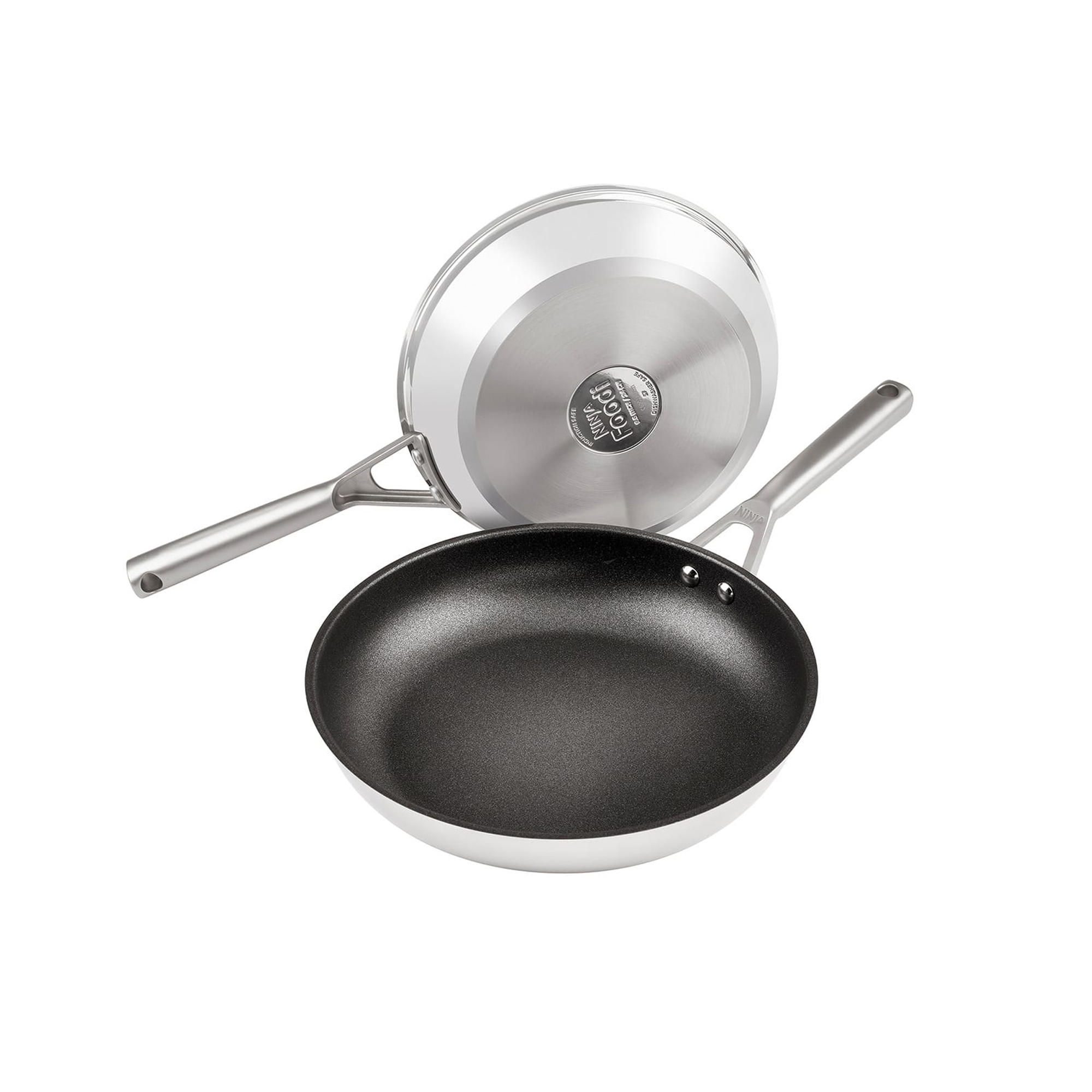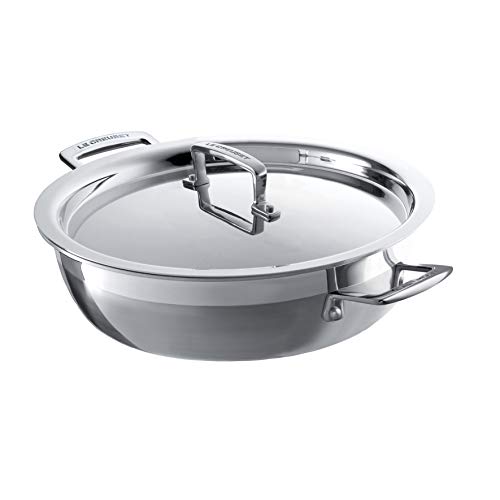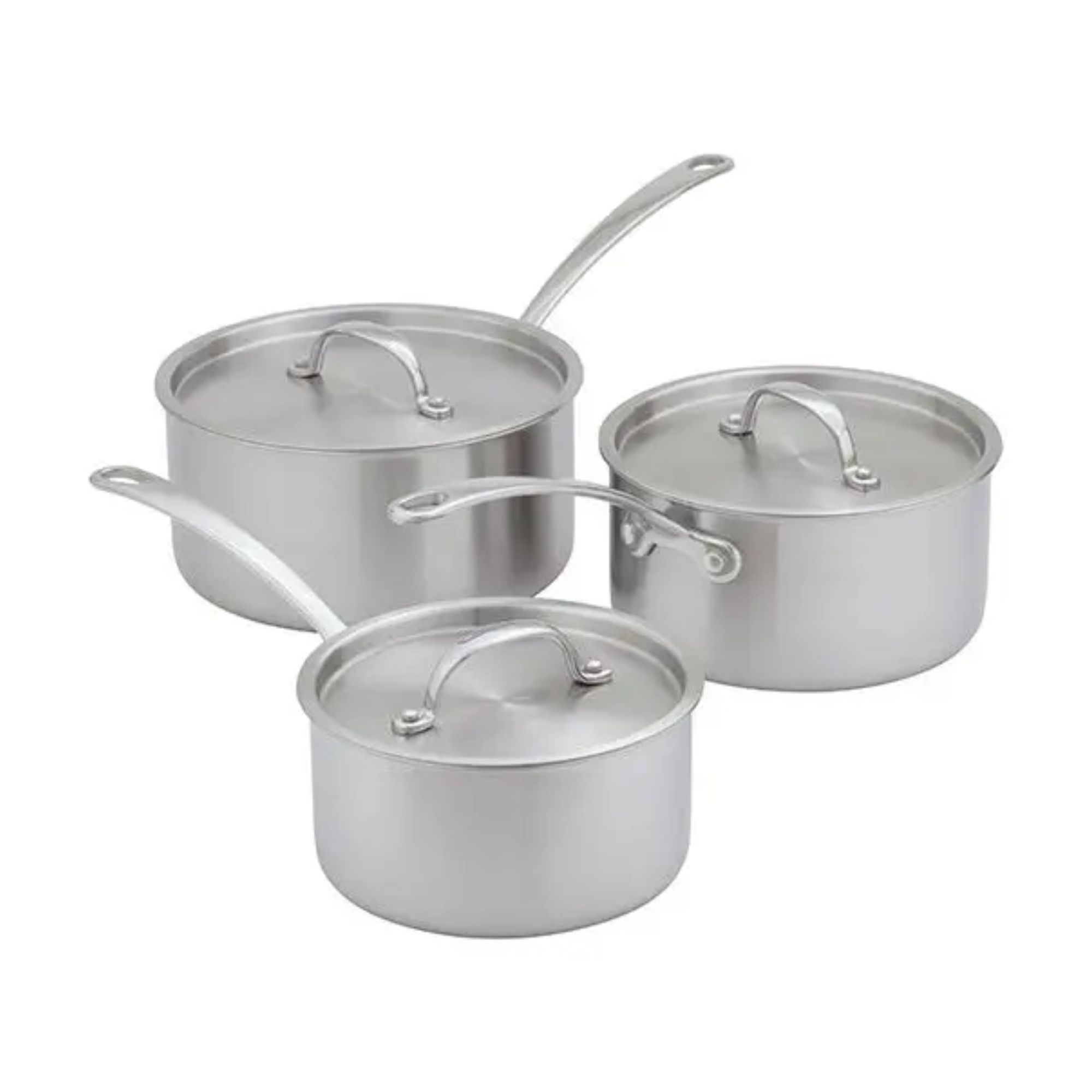Why are stainless steel pans the best option for your kitchen? We asked 3 professional chefs to find out
Is stainless steel the highest quality cooking material out there?

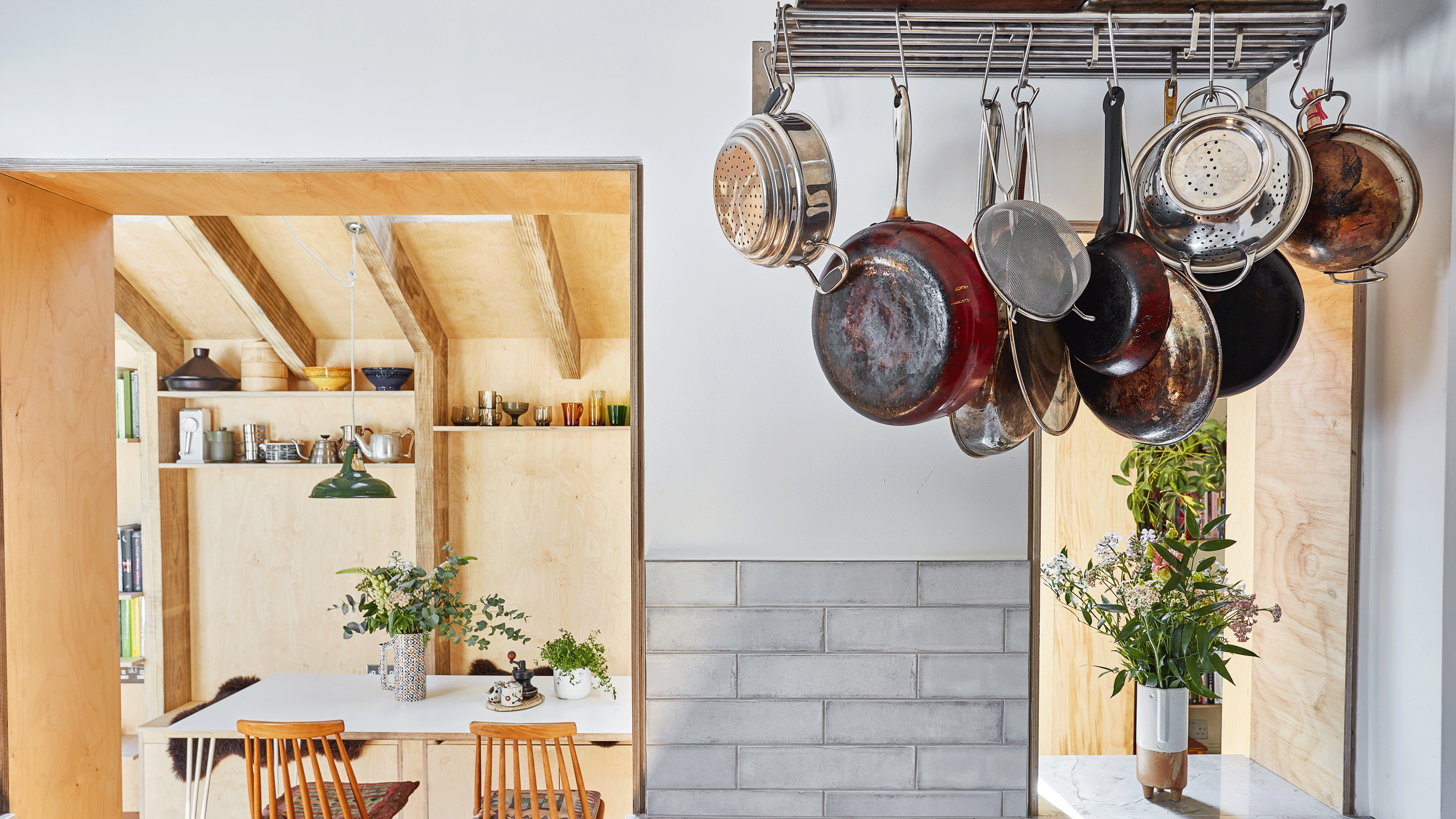
Stainless steel pans are a mainstay of professional kitchens, but why are they so favoured? In my time as Ideal Home's Kitchen Appliances Editor, I've interviewed plenty of experts to inform our guides to the best saucepan sets and best non-stick pans. Almost every professional chef I've spoken to swears loyalty to stainless steel pans due to their robust builds.
Stainless steel, like Le Creuset pots and Vitamix blenders, are seemingly ubiquitous in professional kitchens. Though we're all in favour of doing as the pros do, the elephant in the room is that stainless steel doesn't come cheap. So I set out to first establish why chefs love to use stainless steel over cast iron or toughened non-stick alternatives and to find out if we should follow suit in our kitchens at home.
The benefits of stainless steel pans
If you're shopping and come across a pan with a stainless steel construction, it'll usually be made from an alloy of iron, carbon, nickel, and chromium. This combination of metals means that stainless steel pans shouldn't taint or warp when used, even at high heat.
These metals are also efficient conductors, so your pan will evenly distribute heat to whatever you're cooking, making following a recipe or whipping up a dinner much easier.
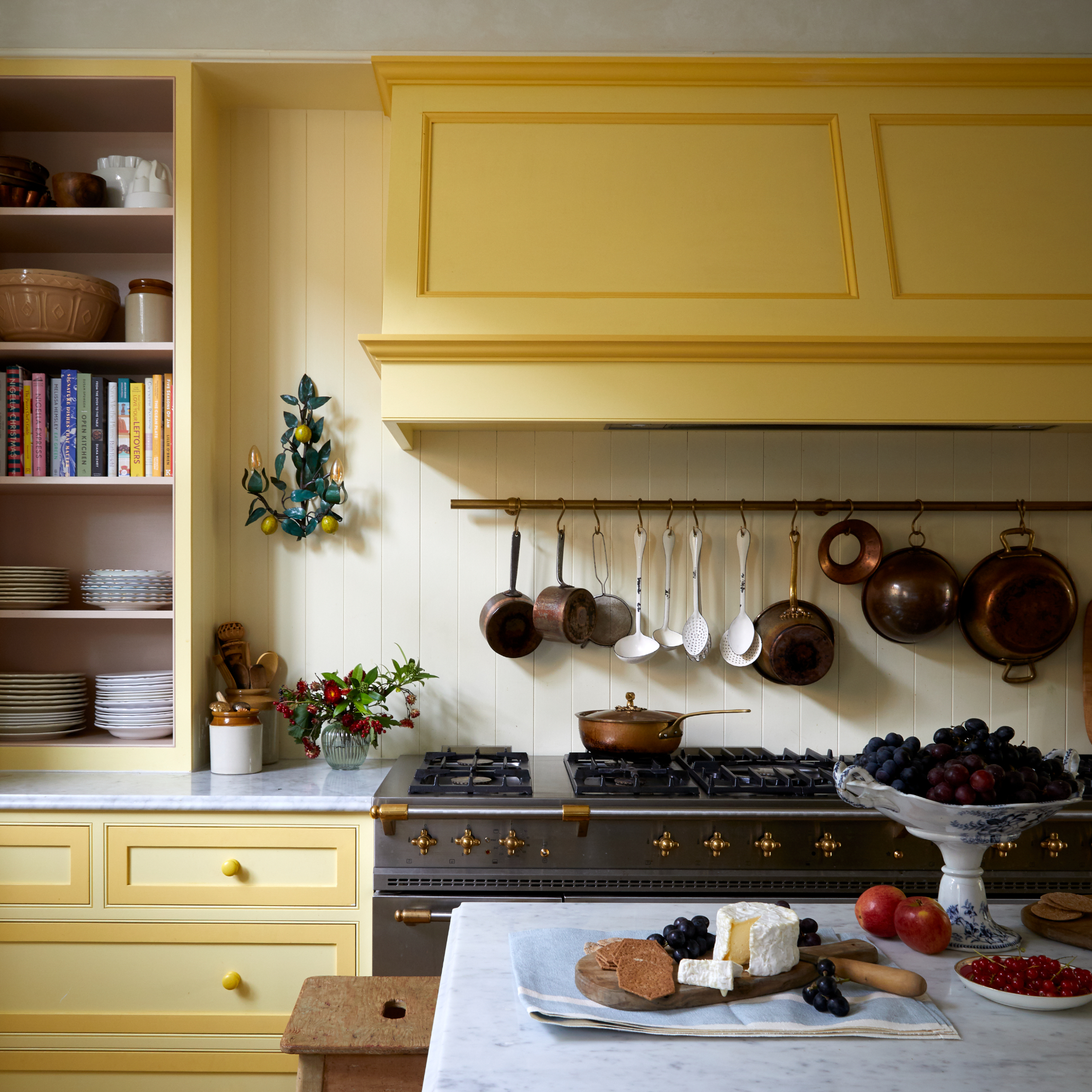
Eric Fraudeau, a French chef with over 40 years of culinary experience and the owner of Cook’n With Class Paris, a cooking school in France, has a simple piece of reasoning as to why he favours this type of cookware in a professional setting.
'Stainless steel pots are a chef's best friend—they’re easy to clean, naturally non-stick, heat up quickly, and don’t require any seasoning, making them incredibly convenient for everyday use in the kitchen.'
He's not the only chef to vouch for this material in a setting where food standards are high. Paul Bough, cookware brand ZWILLING's Resident Chef, breaks down the situations where you'd want a stainless steel pan on hand, saying 'Stainless steel pans are good all-rounders that can be used with low to high temperatures for sauces, fish and sautéing vegetables while iron pans or pans with a criss-cross mesh surface are ideal for searing steak.'
Sign up to our newsletter for style inspiration, real homes, project and garden advice and shopping know-how
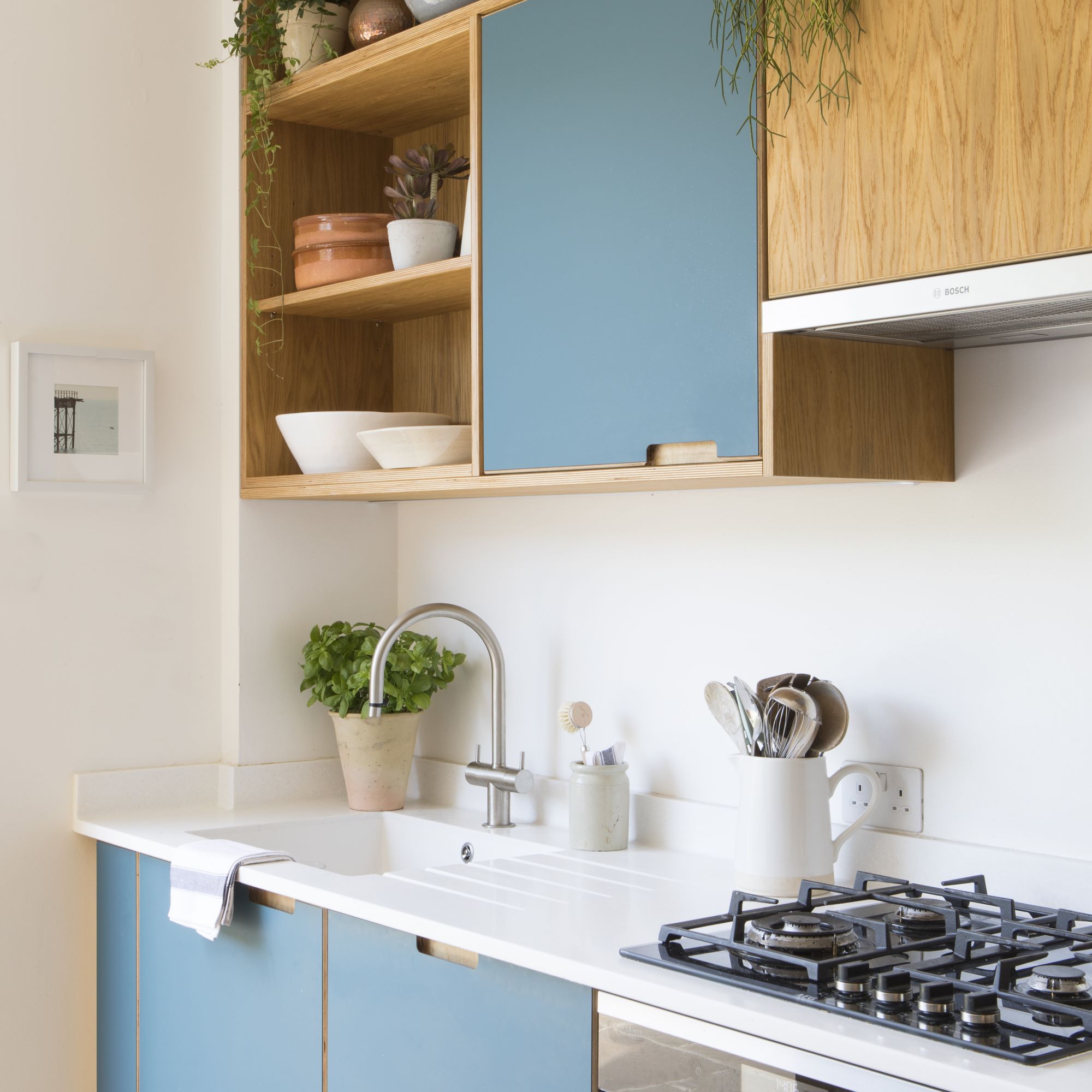
Another important element to using stainless steel pans is weight, as I found out when I attended a cooking class with Le Creuset's resident home economist Alison Haigh. Le Creuset's stainless steel 3-ply collection is professional weight and can therefore maintain higher temperatures and retain heat better.
The drawbacks of stainless steel pans
As I touched on earlier, the main thing that will prevent most of us from a kitchen full of stainless steel is the price tag, with sets often getting into the hundreds of pounds.
Though stainless steel pans are favoured by chefs for restaurant cooking there's an argument that for everyday cooking you might be better off with a cheaper alternative. Paul Bough, resident chef at ZWILLING, says 'Different pans suit different tasks and non-stick designs are ideal for things like frying or scrambling eggs, as they don’t require much oil, if at all.'
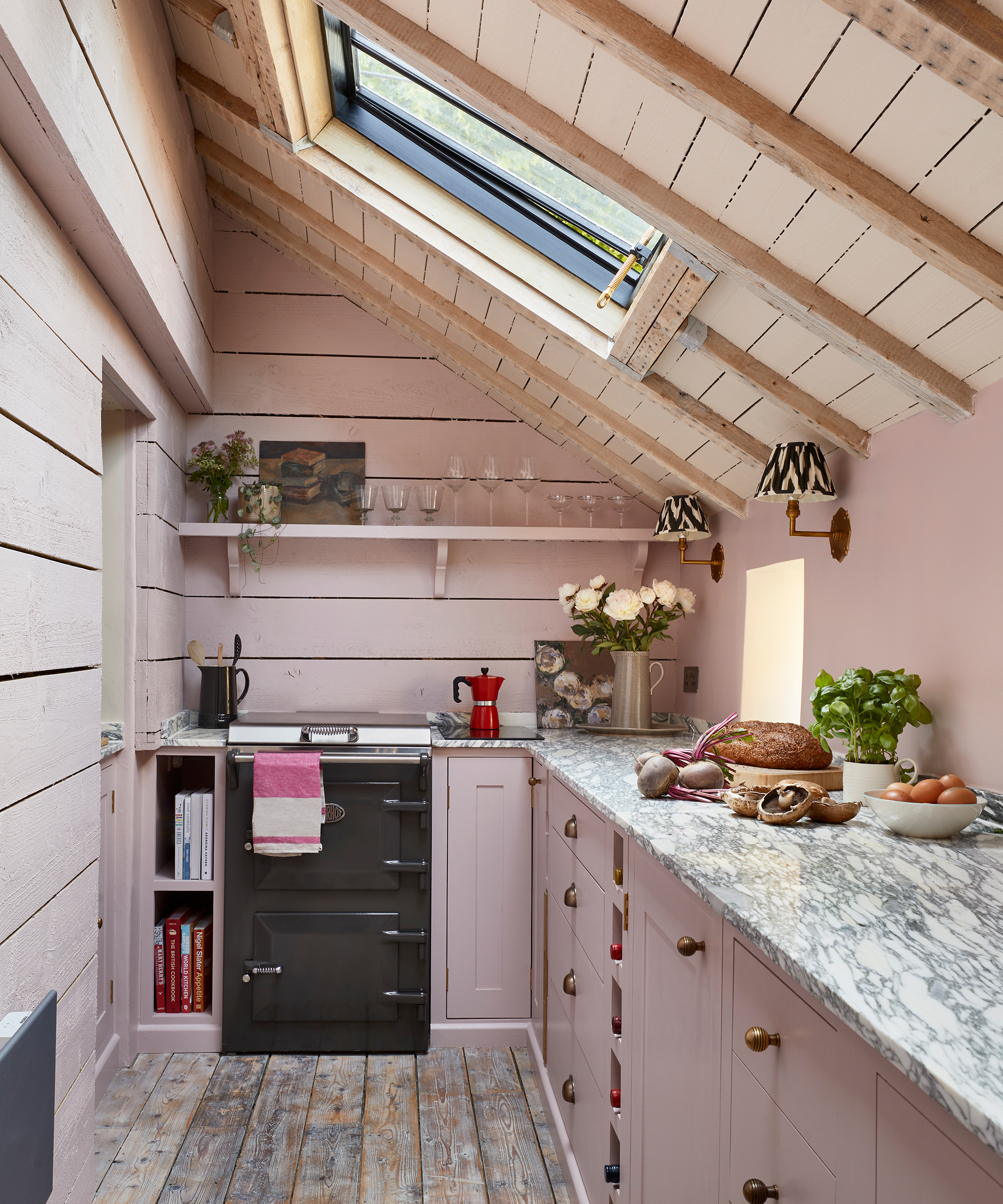
He adds 'The great thing about non-stick pans is that they don’t need to be seasoned before use and they should stay non-stick for a long time, especially when a triple-layer Permaresist Ultra coating is applied. For easy cleaning and low maintenance, look for a scratch-resistant design that’s also dishwasher-safe and for versatility when cooking, check that it’s oven-proof, too.'
As Paul touches on, though you don't have to season a stainless steel pan, some prefer to and the process for keeping your stainless steel in good condition can be more involved than a normal non-stick pan.
When is a stainless steel pan right for you?
Stainless steel pans are right for you if you're cooking in your kitchen every day, especially if you invest in a saucepan set that has a frying pan included, as you can efficiently cook carbs (like rice and pasta) as well as sauté meat and vegetables.
If you're more of a casual cook, and tend to stick to using just one pot or pan for smaller jobs (like cooking eggs or all-in-one meals), then a non-stick pan might serve you best long-term, given the upfront cost of stainless steel pans is so high.
If you want to invest in a seriously capable set of stainless steel pans, you can find a few of my favourites below that I've tried and tested.
Will you be opting for stainless steel in your kitchen the next time you need to update your cookware?

Molly is Ideal Home’s Kitchen Appliances Editor, the Ideal Home Certified Expert on Appliances. An all-around cooking and baking enthusiast, she loves finding the next must-have product for readers that will their kitchen a better place. She joined the team in September 2022 after working on the editorial teams of Real Homes, Homes & Gardens and Livingetc.
For the last 4 years, she's been reviewing hundreds of small appliances; conducting tests at home or in the Ideal Home test kitchen. She would be hard-pressed to pick a Mastermind specialist subject but air fryers are her ultimate area of expertise, after testing just about every single one released since 2022.
To keep ahead of trends and new releases, Molly has visited the testing and development spaces of multiple kitchen brands including Ninja Kitchen and Le Creuset as well as attended consumer shows such as IFA, hosted in Berlin to see the cooking innovations of the future.
